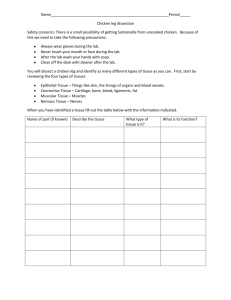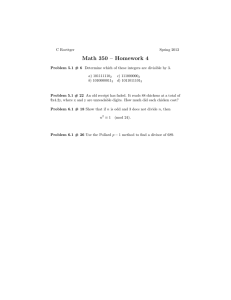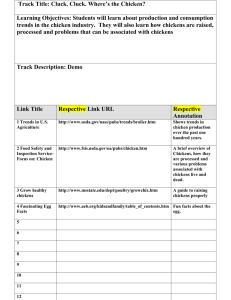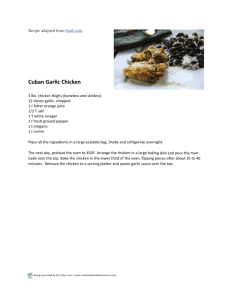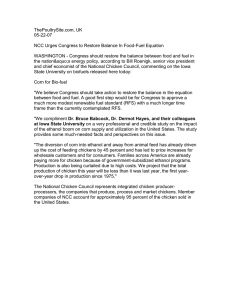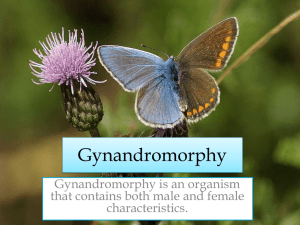rate of heat removal from the chicken and the rate... 8-48
advertisement
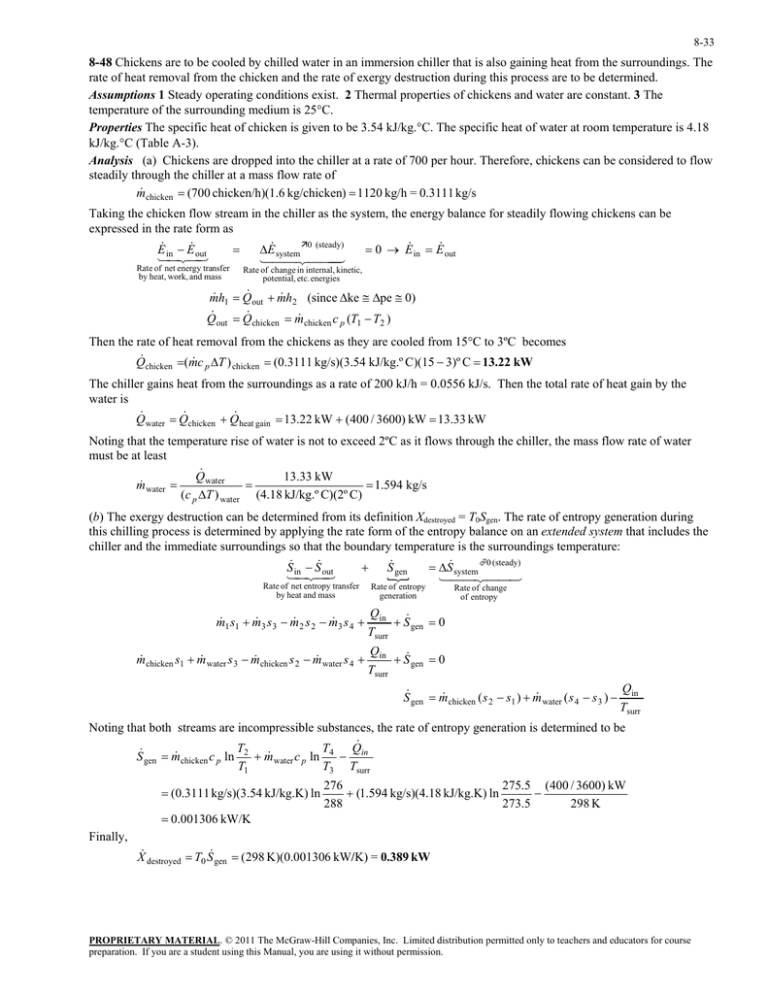
8-33 8-48 Chickens are to be cooled by chilled water in an immersion chiller that is also gaining heat from the surroundings. The rate of heat removal from the chicken and the rate of exergy destruction during this process are to be determined. Assumptions 1 Steady operating conditions exist. 2 Thermal properties of chickens and water are constant. 3 The temperature of the surrounding medium is 25C. Properties The specific heat of chicken is given to be 3.54 kJ/kg.°C. The specific heat of water at room temperature is 4.18 kJ/kg.C (Table A-3). Analysis (a) Chickens are dropped into the chiller at a rate of 700 per hour. Therefore, chickens can be considered to flow steadily through the chiller at a mass flow rate of m chicken (700 chicken/h)(1.6 kg/chicken) 1120 kg/h = 0.3111 kg/s Taking the chicken flow stream in the chiller as the system, the energy balance for steadily flowing chickens can be expressed in the rate form as E E E system 0 (steady) 0 E in E out inout Rate of net energy transfer by heat, work, and mass Rate of change in internal, kinetic, potential, etc. energies m h1 Q out m h2 (since ke pe 0) Q out Q chicken m chicken c p (T1 T2 ) Then the rate of heat removal from the chickens as they are cooled from 15C to 3ºC becomes Q (m c T ) (0.3111 kg/s)(3.54 kJ/kg.º C)(15 3)º C 13.22 kW chicken p chicken The chiller gains heat from the surroundings as a rate of 200 kJ/h = 0.0556 kJ/s. Then the total rate of heat gain by the water is Q Q Q 13.22 kW (400 / 3600) kW 13.33 kW water chicken heat gain Noting that the temperature rise of water is not to exceed 2ºC as it flows through the chiller, the mass flow rate of water must be at least Q water 13.33 kW m water 1.594 kg/s (c p T ) water (4.18 kJ/kg.º C)(2º C) (b) The exergy destruction can be determined from its definition Xdestroyed = T0Sgen. The rate of entropy generation during this chilling process is determined by applying the rate form of the entropy balance on an extended system that includes the chiller and the immediate surroundings so that the boundary temperature is the surroundings temperature: S S out S gen S system 0 (steady) in Rate of net entropy transfer by heat and mass Rate of entropy generation m 1 s1 m 3 s 3 m 2 s 2 m 3 s 4 Qin S gen 0 Tsurr m chicken s1 m water s 3 m chicken s 2 m water s 4 Qin S gen 0 Tsurr Rate of change of entropy Q S gen m chicken ( s 2 s1 ) m water ( s 4 s 3 ) in Tsurr Noting that both streams are incompressible substances, the rate of entropy generation is determined to be Q T T S gen m chicken c p ln 2 m water c p ln 4 in T1 T3 Tsurr (0.3111 kg/s)(3.54 kJ/kg.K) ln 276 275.5 (400 / 3600) kW (1.594 kg/s)(4.18 kJ/kg.K) ln 288 273.5 298 K 0.001306 kW/K Finally, X destroyed T0 S gen (298 K)(0.001306 kW/K) = 0.389 kW PROPRIETARY MATERIAL. © 2011 The McGraw-Hill Companies, Inc. Limited distribution permitted only to teachers and educators for course preparation. If you are a student using this Manual, you are using it without permission.
